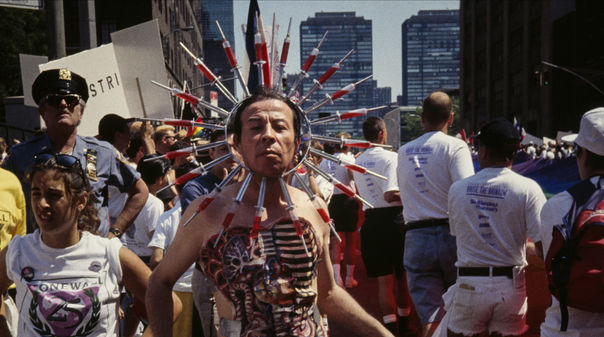Pedro Lemebel, the Mare of the Apocalypse
By Andrea Guzmán

© Joanna Reposi Garibaldi, Gabriela Jara
Although he is established as one of the best-known Latin American writers, Pedro Lemebel was a provocative Chilean countercultural icon that caused a lot of trouble and discomfort in his own society. Wild sharp-tongued poet, performer and homosexual activist during a very long dictatorship, Pedro Lemebel was not even well received in the progressive left-wing circles that fought against Pinochet. So he embraced the idea of being an outsider as his great value and transformed his own marginality into a battle cry. LEMEBEL, a loving documentary made by his close friend and collaborator Joanna Reposi Garibaldi, tells the story of this great icon of Latin American subculture from his 1980s start as a street performer with the group “The Mares of the Apocalypse” to his death from cancer in 2015. The feature was intimately and patiently filmed for 12 years but its premiere in Berlinale Panorama comes with a very powerful urgency, at a time when the poet’s work is starting to be banned from being read in a lot of Chilean schools.
Though he is more famous internationally for his writing, with books such as “My Tender Matador” or “Crazy Desire,” LEMEBEL explores another side of this artist, focusing on his disruptive, vanguardist career as a performance artist. Striking in the 80s in Chile, Lemebel problematised the body as a political weapon, taking the physical violence over it as his material, thus transforming the body itself into an artistic living essay. The film accompanies that spirit of transformation in form and content, presenting itself as an intense experimental essay-documentary that mixes formats, historical background, and philosophical ideas. A video collage that includes slides made by the director through the years, archival and new footage, many years worth of very intimate conversations with Lemebel, and street performances made especially for the film. Its great value is not just as a very loving, ethereal presentation of a poetic character but ultimately as a quietly painful portrait of Chilean society.

